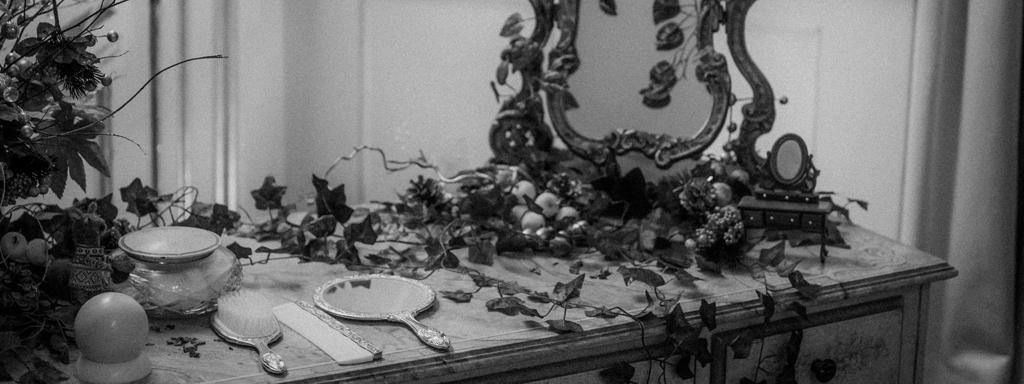We were married not a quarter hour when I saw how it would be. As I walked up from All Saints with my sister, the orange blossom fresh on my bonnet, William went on ahead with my brothers, and she came running, hatless, wild, from the farmhouse door and fell weeping into his arms. They carried her between them with not a glance behind, but once I reached the portal, she was standing, white-faced but calm, to kiss and congratulate me. And on her finger was the ring that William bought in France to put on mine.
After breakfast, I said goodbye to my dear ones, trying not to weep. They were surprised how much I clung around their necks for they’d known for years that William and I would one day wed. I’d chosen him with a clear mind, or so I thought, believing we’d be a team, he and I and Dorothy, our faithful sister. But I hadn’t seen how deep it went, their attachment. Though she was William’s eyes and ears by his own account, I feared she was his heart and hands as well.
Through all the three days we travelled from Brompton to Grasmere, she sat between us in the chaise – “So dear Mary can see the view.” They’d walked that way together some years before, and every turn in the road brought more cries of gladness. “William, remember how we walked up to the falls?” and “Why William, this is the very inn we stayed at on that rainy night.” She’d always been a one for rhapsodizing, a brimming pool of passion apt to overflow. I feigned sleepiness but still she would nudge an elbow in my side and have me look – at prospects and castles and the merest boy driving his sheep.
On that first day, we stopped to await fresh horses at a jasmine-draped inn, and off they went to ramble, leaving me to warm my ringless hands over the fire. Back in the chaise, I marvelled at the picturesque view of Rievaulx Abbey we had from the road, and she said, “Why Mary, I suppose you’ve never seen a ruined abbey before” – as if Whitby was not to be considered. As night began to fall, the shapes of trees and towers stood out against the fading light, and William’s lips moved as he sought the words that best described the scene.
It was late when we reached the inn at Thirsk. I trembled as we ate our hot supper, thinking of being abed with my husband for the first time, but though I washed myself under my nightgown behind the folding screen, William simply kissed my cheek and turned away into sleep. I lay awake, thinking of his sister’s tiny, sinewed body, hard and unyielding, and her small black eyes, forever on the watch for what she needed to sustain her.
The second day, there was sunshine and showers as we wound along the flat green meadows by the River Eur. As the road rose through a village, one of the horses pulled up lame, and the post-boy was obliged to fetch a replacement. We three waited, snug in the chaise even as the wind rattled the windows. William fell asleep on Dorothy’s breast, and in time she dozed against me, and I bore the weight of them both. There was naught to do but stare out across the vale at the square brute towers of Bolton Castle where poor Mary, Queen of the Scots was held captive. When Dorothy woke, she reached across me and, fumbling for the door catch, jumped out and vomited in the grass. “She’s often this way when her nerves are bad,” William said, rubbing his eyes. He did not speak unkindly, but it seemed to tax his patience.
It was not quite dark when we got to Hawes. William and I ate mutton chops and drank a shilling’s worth of negus, but again Dorothy was ill, and I asked the innkeeper’s leave to make her some broth as I had many times done for my own brothers and sisters to soothe their stomachs. When we gathered the next morning, it pleased me to see some colour in her cheeks again.
The rain held off for much of the last day. Gleams of sunshine lit up lovely Garsdale, and Dorothy delighted in the publick house where, once before, she and William had drunk ale and in the rugged hillside where they had walked. I saw how they both quickened as the Dales gave way to their beloved lakelands. By Windermere, where the rain began in earnest, Dorothy said, “We are almost home,” and there was such gladness in her face.
When we arrived in Grasmere at dusk, their servant Molly Fisher greeted me warmly, remembering me well from my former visits. As I gazed around my new home, she said, “Mrs. Wordsworth, won’t you come this way?” Surprised, I held back. “Why, surely that is Dorothy’s room?” And that was how I learned that she had written on ahead to have her things moved upstairs “because she wished the newlyweds to have the better chamber.”
That night, in the bed that had been hers, William lay with me at last, and he was tender in the darkness, and all was well between us.
The next day, Dorothy and I unpacked our boxes, then walked together up “our domestic slip of mountain” as she called it, laughing, and back by the farm gate with the view of Rydale Water. As we looked down upon the hills reflected in the lake, she took my hand in hers and said, “This is the first walk I have taken with my sister.”
When I rose at dawn the next morning and put the brush to my hair, I found the ring lying on the dresser. I slipped it on my finger and went to make enough bread to sustain us all.
…
Biography
Fiona J. Mackintosh (@fionajanemack) is the Scottish-American author of The Yet Unknowing World, a flash fiction collection from http:/adhocfiction.com, and is a past winner of the Fish, Bath, and Reflex Awards. Her stories were selected for Best Microfiction 2019, the Best Small Fictions 2019, and the 2018-19 BIFFY50. Learn more at: www.fionajmackintosh.com.
Image: unsplash.com





